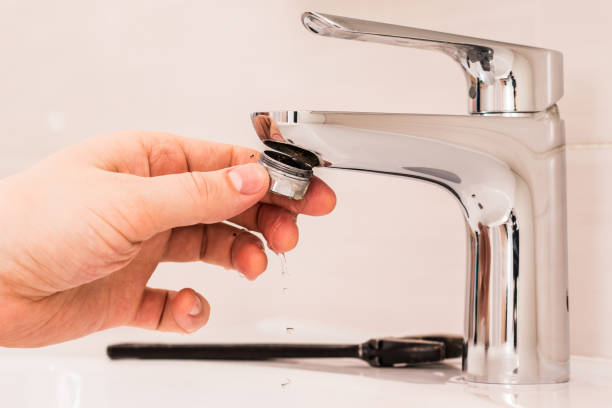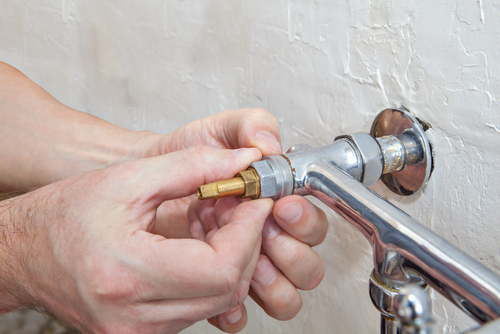Reasons Why It's Essential to Fix a Dripping Faucet
Reasons Why It's Essential to Fix a Dripping Faucet
Blog Article
What're your ideas concerning What Causes Leaky Faucets & How To Fix Them?

Leaking faucets could appear like a minor aggravation, however their impact surpasses just the annoyance of the sound. From drainage to incurring unneeded economic costs and wellness dangers, ignoring a leaking faucet can cause various repercussions. In this article, we'll explore why it's critical to resolve this common family issue immediately and effectively.
Waste of Water
Environmental Effect
Trickling faucets add substantially to water wastage. According to the Epa (EPA), a solitary faucet leaking at one drip per secondly can waste more than 3,000 gallons of water each year. This not only strains water sources yet also affects ecological communities and wildlife based on them.
Step-by-Step Overview to Dealing With a Dripping Faucet
Tools Needed
Prior to trying to fix a leaking tap, gather the essential devices, including an adjustable wrench, screwdrivers, replacement parts (such as washing machines or cartridges), and plumber's tape.
Common Faucet Issues and Their Solutions
Determine the kind of tap and the details concern causing the drip. Common issues include damaged washing machines, rusty shutoff seats, or damaged O-rings. Describe manufacturer instructions or online tutorials for step-by-step guidance on repair work.
Financial Expenses
Boosted Water Expenses
Past the ecological effect, leaking taps can pump up water expenses significantly. The collected wastefulness in time converts right into greater energy expenses, which could have been prevented with prompt repairs.
Potential Building Damages
Furthermore, prolonged trickling can bring about harm to fixtures and surface areas bordering the faucet. Water buildup can cause staining, rust, and even architectural problems if left ignored, resulting in additional repair work expenses.
Health and wellness Issues
Mold And Mildew and Mildew Development
The continuous existence of moisture from a dripping faucet develops a perfect atmosphere for mold and mildew and mold development. These fungi not just jeopardize indoor air quality yet also position health threats, particularly for people with respiratory system problems or allergies.
Waterborne Diseases
Stationary water in dripping taps can become a breeding place for germs and various other microorganisms, increasing the danger of waterborne illness. Contaminants such as Legionella microorganisms flourish in stationary water, potentially bring about major ailments when consumed or inhaled.
Do it yourself vs. Professional Repair service
Advantages and disadvantages of Do It Yourself Repair Work
While some might try to repair a trickling faucet themselves, DIY repairs feature their very own set of difficulties. Without correct expertise and tools, do it yourself efforts can exacerbate the problem or bring about incomplete repair services, lengthening the problem.
Advantages of Working With a Specialist Plumber
Employing an expert plumber guarantees that the underlying cause of the leaking tap is addressed successfully. Plumbers have the expertise and devices to detect and repair faucet concerns effectively, saving time and lessening the threat of more damage.
Environmental Responsibility
Individual Contribution to Conservation
Taking obligation for taking care of leaking taps lines up with more comprehensive efforts toward water conservation and environmental sustainability. Every individual's activities jointly make a substantial influence on maintaining priceless sources.
Sustainable Living Practices
By prioritizing timely repair work and embracing water-saving routines, individuals contribute to lasting living techniques that profit both present and future generations.
Preventive Measures
Regular Upkeep Tips
To avoid leaking faucets, perform regular upkeep such as cleansing aerators, checking for leaks, and changing damaged parts quickly. Additionally, take into consideration setting up water-saving devices or updating to a lot more effective fixtures.
Relevance of Prompt Fixes
Attending to dripping taps as quickly as they're noticed avoids more water wastefulness and potential damages, inevitably conserving both water and cash over time.
Impact on Home Value
Assumption of Well-Maintained Residential Property
Maintaining a home in good condition, consisting of attending to maintenance concerns like dripping taps, enhances its regarded value and charm among prospective buyers or lessees.
Impact on Resale Worth
Qualities with well-maintained plumbing components, including taps, command higher resale values in the property market. Dealing with trickling faucets can contribute to a favorable perception throughout home examinations and settlements.
Final thought
Addressing a leaking tap goes beyond simple ease; it's an important action towards preserving water, minimizing economic costs, and protecting wellness and property. Whether with do it yourself repairs or professional support, acting to deal with trickling taps is a tiny yet impactful means to promote responsible stewardship of sources and add to a healthier, extra sustainable future.
How to Fix a Leaky Faucet: Step-by-Step Repair Guide
A leaky faucet may seem like a simple annoyance, but if it's not fixed promptly, that leak could cost hundreds to potentially thousands. From water damage to mold, mildew, and high water bills, even a tiny leak can be catastrophic if left unattended. Damage like this can even affect the overall value of your home, so it's important to take the right approach for leaky faucet repair. You may need the help of a plumber in some cases, but we've got a few tips you can try on how to fix a leaky faucet before calling the pros.
Four Faucet Types
When you're learning how to fix a leaky faucet, the first step is knowing what kind of faucet you're working with! There are four common types.
Cartridge Faucets
Cartridge faucets come in one- or two-handled varieties. In one-handled cartridge faucets, hot and cold water combines in a single cartridge. In the two-handled versions, hot and cold water are controlled separately and mixed in the faucet.
Ball Faucets
Ball faucets have a single lever you push up and down to adjust the pressure and rotate to change the temperature. A slotted metal ball controls the amount of water allowed into the spout.
Compression Washer Faucets
They're the oldest type of faucet, but they're still used in many homes — especially older ones. Compression faucets have two separate handles that, when turned, raise or lower the washer that seals a water valve. This valve stops water from flowing through the faucet when it is turned off.
Disc Faucets
Disc faucets rarely need to be repaired due to their maintenance-free design. The water flow is controlled by two discs — the upper one raises and lowers against a fixed lower disc, creating a watertight seal. If your disc faucet starts leaking, you may need to replace the seals or clean residue buildup from the inlets.
Fixing a Leaky Faucet
Step 1: Turn Off the Water
Whether you're learning how to fix a leaky bathtub faucet or how to fix a leaky kitchen faucet, always turn off the water supply to your working area when you're fixing a leak. The last thing you want is a flood added to your list of things to fix.
Look for the shutoff valves below your sink or around the tub and turn them clockwise to stop the water flow. If your faucet doesn't have shutoff valves, you may need to turn off the water for the whole house. Check to make sure it's off by turning the faucet on. If nothing comes out, you're ready to start the repair.
Step 2: Take Apart the Faucet
How you disassemble your faucet depends on the type of fixture you have. You can use a flathead screwdriver to remove the caps on top of the handle or handles for cartridge and compression faucets. Inside, you should see handle screws. Unscrew these with a screwdriver to remove the handle.
Disc- and ball-style faucets will typically have an inlet screw near the handle, and removing that will reveal the interior of the faucet.
Detach the Valve Stem
For cartridge- and compression-style faucets, you'll see the inner valve stem or cartridge once you remove the faucet handles. If you have a compression faucet, unscrew the brass valve stem. If you have a cartridge faucet, pull out the cartridge. If your cartridge has been in place for a while, it may require some tools or extra force to remove it due to mineral deposits.
Examine and Replace Parts
Once you've removed the parts, check them out to confirm what needs to be replaced. You may see corroded rubber washers, O-rings, stems, or cartridges. On a ball-style faucet, check the seats and springs for damage.
If you need to repair a leaky disc faucet, check the inlet and seals on the lower disc.
Once you determine what parts must be replaced, visit your local hardware store. Bring the damaged parts with you to ensure you can purchase the correct components to replace them.
Clean Valves and Faucet Cavity
If you've removed a stem or cartridge, you may notice mineral buildup in the faucet's threads. Use white vinegar to clean the valve seat by soaking it for a few minutes, then scrub it away with a soft toothbrush and rinse with warm water. You can also clean the interior of the faucet in the same way.
Reassemble the Faucet
Once your faucet is cleaned and the required parts have been replaced, it's time to reassemble it. Put the pieces back together and slowly turn the water supply back on. Doing this slowly is crucial because too much initial water pressure can damage the new hardware you've just installed.
https://homewarranty.firstam.com/blog/how-to-fix-leaky-faucet

I'm just very involved in Leaky Faucets: Why They Happen & What to Do About Them and I hope you appreciated our post. Are you aware of another individual who is fascinated with the topic? Please feel free to promote it. I recognize the value of reading our article about How to Fix a Dripping or Leaky Faucet .
Report this page